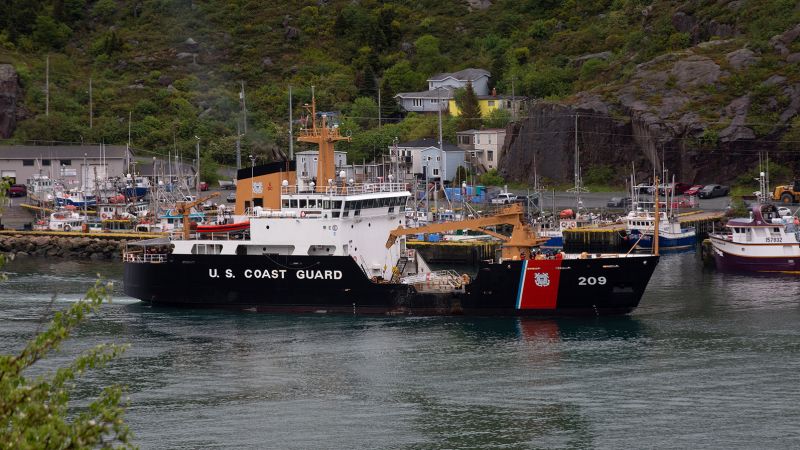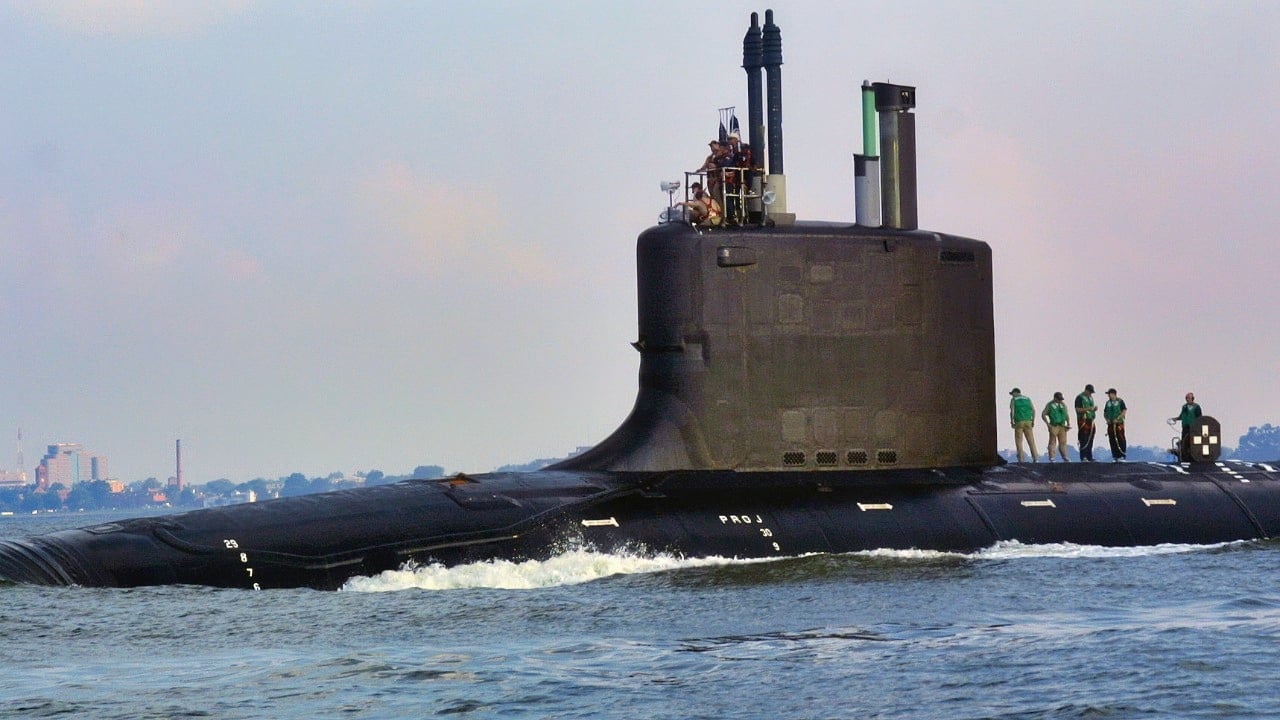CNN
—
US medical professionals will analyze “presumed human remains” that were found in the Titan submersible’s wreckage in the North Atlantic Ocean as probes continue into the vessel’s catastrophic implosion.
The OceanGate submersible lost contact with its mother ship, the Polar Prince, shortly after it began descending to the Titanic wreck on the morning of June 18. When the vessel failed to resurface, it sparked a massive, international search and rescue effort that concluded one week ago, when US authorities announced the submersible suffered an implosion and the five men aboard had presumably died.
The US Coast Guard has convened a Marine Board of Investigation – the highest level of investigation it conducts – to probe what caused the tragedy and offer possible recommendations “to the proper authorities to pursue civil or criminal sanctions as necessary,” said Coast Guard Capt. Jason Neubauer, who heads the investigative board.
As part of that probe, investigators will analyze debris from the vessel’s wreckage, collect evidence and conduct witness interviews as well as hold a public hearing for further witness testimony.
On Wednesday, the government branch said the debris and evidence that was recovered from the seafloor at the site of the Titan wreckage had arrived at the Canadian pier of St. John’s, Newfoundland and Labrador.
That evidence will now be transported to a US port for further analysis and testing, the Coast Guard said in a news release. Part of the evidence that will be analyzed are the presumed human remains, the release said.
“The evidence will provide investigators from several international jurisdictions with critical insights into the cause of this tragedy,” Neubauer said in a Wednesday statement. “There is still a substantial amount of work to be done to understand the factors that led to the catastrophic loss of the TITAN and help ensure a similar tragedy does not occur again.”
In a separate news release also issued Wednesday, the Transportation Safety Board of Canada (TSB) confirmed the Titan wreckage had arrived in the St. John’s port, was inspected and documented and is now in possession of the US Coast Guard.
The Canadian safety board is also conducting its own safety investigation into the operation of the Polar Prince, the submersible’s mother ship, which the board has described as a “Canadian-flagged cargo vessel.”
TSB investigators have collected all documents and conducted preliminary interviews with those aboard the Polar Prince, the agency said. They have also sent the vessel’s voyage data recorder, which stores audio from the ship’s bridge, to an Ottawa laboratory for analysis.
“The TSB will continue to cooperate with the United States, United Kingdom, and France, in accordance with international agreements, as they are ‘substantially interested states’ under the International Maritime Organization Casualty Investigation Code,” it said in its release.
The Royal Canadian Mounted Police is also investigating the incident and said it is looking into whether “criminal, federal, or provincial laws may possibly have been broken.”
As investigations into what exactly went wrong now begin, family members and loved ones of those who were aboard the minivan-sized vessel are grieving for the five men killed.
They were Pakastani businessman and his son, Shahzada and Suleman Dawood; British businessman Hamish Harding; French diver Paul-Henri Nargeolet; and Stockton Rush, the CEO of the vessel’s operator, OceanGate Expeditions.
Christine Dawood, the wife of 48-year-old Shahzada and mother of 19-year-old Suleman, has said she had intended to take part of the expedition but decided to step aside so her son could go instead.
“They really, really wanted to do that for a very long time,” she told the BBC.
She said her son was a Rubik’s Cube obsessive who took the puzzle, which he could solve in 12 seconds, with him on the Titan, and said he had told her “I’m going to solve the Rubik’s Cube 3,700 meters below sea at the Titanic.”
Harding, a 58-year-old British businessman, had been part of multiple extreme expeditions in the past, including being a member of the flight crew that broke the world record for the fastest circumnavigation of the globe via both poles.
In 2020, he became one of the first people to dive to Challenger Deep in the Pacific Ocean, widely believed to be the deepest point in the world’s oceans.
“He was a passionate explorer-whatever the terrain-who lived his life for his family, his business and for the next adventure,” said a statement on behalf of his family released by Dubai-based Action Aviation, which Harding owned.
Also on the trip was Nargeolet, a 77-year-old French diver who was a former commander who served in the French navy for 25 years.
Nargeolet had decades of experience exploring the Titanic and served as the director of underwater research at RMS Titanic Inc., the company that has exclusive rights to salvage artifacts from the ship.
“When you think of the Titanic and all we know about the ship today, you will think of Paul-Henri Nargeolet and his legendary work,” his family said in a statement.
“But what we will remember him most for is his big heart, his incredible sense of humor and how much he loved his family,” the statement added.
Rush, 61, founded OceanGate in 2009, with a stated mission of “increasing access to the deep ocean through innovation.”
Throughout his life, he cultivated a reputation as a nature lover, an adventurer and a visionary and was described by OceanGate as a true explorer with a “distinct spirit of adventure.”




























/cdn.vox-cdn.com/uploads/chorus_asset/file/25724877/Super_Nintendo_World.png)

